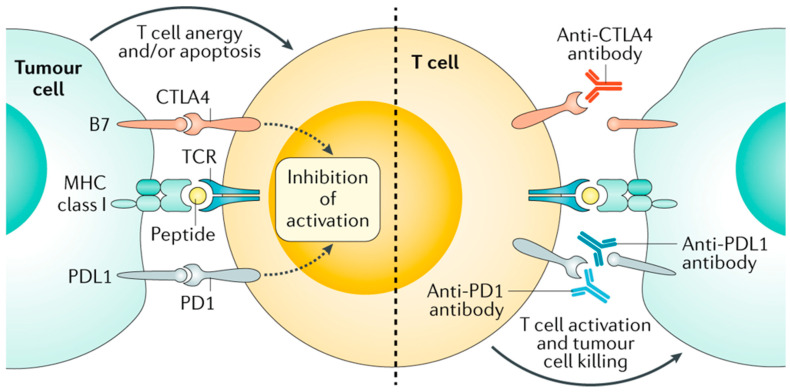Figure 3.
Endogenous peptides are processed and presented on major histocompatibility complex (MHC) class I molecules on the surface of all human cells, including cancer cells. The peptide–MHC complex is recognized by T cell receptors (TCRs). The response of the T cell is fine-tuned by a range of co-inhibitory or co-stimulatory signals. The ligands CD80 and CD86 of the B7 family of membrane-bound ligands can bind to the co-stimulatory CD28 and, especially in activated T cells, to cytotoxic T lymphocyte antigen 4 (CTLA4). Similarly, membrane-bound programmed cell death 1 ligand 1 (PDL1) and programmed cell death 1 ligand 2 (PDL2) can engage programmed cell death 1 (PD1), leading to T cell anergy and/or apoptosis. Monoclonal antibodies that bind to either the inhibitory receptors on T cells or their ligands on cancer cells antagonize inhibitory signaling and enable T cell activation and cytotoxic tumor cell killing. This figure was reprinted with copyright permission from [114].

